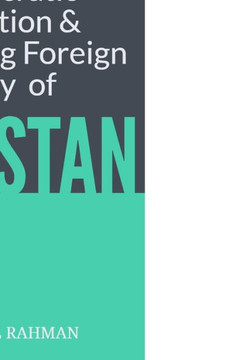
NA
A Divergent Foreign Policy Alliance : The US Towards Military-ruled Pakistan (1947-65)
Product Code:
9781636675206
ISBN13:
9781636675206
Condition:
New
$118.11

A Divergent Foreign Policy Alliance : The US Towards Military-ruled Pakistan (1947-65)
$118.11
This book examines through the use of archives and oral evidence the role of the Pakistan Army in the context of Pakistan's foreign policy and domestic politics. Its main purpose is to explore the autonomy of the Pakistan Army in shaping national and foreign policy between the years 1947-1965. Focusing on its independent relationship with three instruments of policy-making in the United States - the Department of State, the White House and the Pentagon - the theory argues that the relationship between the Army and these policy-making bodies arose from a synergistic commonality of interests. The Americans needed a country, created in the name of Islam, on the periphery of the Soviet Union to contain Communism while the Pakistan Army needed US military support to check Indian regional military hegemonism in South Asia. This alliance was secured to the disadvantage of democratic political institutions of Pakistan while sowing the seeds of religious bigotry in politics. The Army, which became stronger as a result of US military and economic support, came progressively to dominate domestic politics. This led not only to weakened civilian governments in the period I am examining, but in 1958 to the military seizure of political control of the country itself. The infringement of the Army into civilian spheres of government further caused a deterioration in relations between East and West Pakistan. Religion, the foundation of the creation of country, failed to keep the two wings united. The increasing clout of a US-backed Army whose elite officers had a bias against the eastern wing of the country, the theory argues, thus indirectly resulted in the dismemberment of Pakistan itself. To explain the Army's ascendancy its transformation from British colonial army into a national political actor, is documented. The book explores the influence of the martial-race theory and of Punjabisation in the Army as it developed in the colonial era. Secondly, it reconstructs how provincial politics weakened the Federal Government and allowed the Army to usurp political power to a disproportionate degree. Thirdly, it considers the extent to which the US- Pakistan Army relationship influenced and even took precedence over decision-making within the government itself. It details the military pacts made between the two countries to contain the USSR in this period. Finally, it explores where and how the interests of the US and Pakistan Army diverged, in particular concerning their respective relations with India. The complications arising in Indo-Pakistan relations in consequence of an abrupt tilt of the US towards India after the Sino-Indian war in 1962 are also examined. In reaction to this new Indo-US nexus, it is argued the Pakistani military junta leaned towards China and in 1965 endeavoured to make use of it advanced, US-supplied weaponry before - as they saw it - the strategic balance was to be irrecoverably lost in favour of India. In conclusion, the book argues that the period under consideration saw a complete failure of the US policy of containing communism whilst at the same time avoiding war between its allies in the region, and that this had tragic consequences for the future of secular democracy in Pakistan--
| Author: Syed Hussain Shaheed Soherwordi |
| Publisher: NA |
| Publication Date: Sep 30, 2024 |
| Number of Pages: NA pages |
| Language: English |
| Binding: Hardcover |
| ISBN-10: 1636675204 |
| ISBN-13: 9781636675206 |





